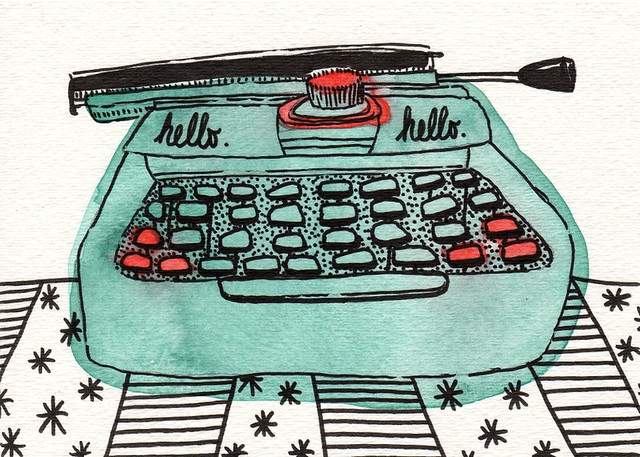write a great synopsis to go with your stellar query and sample pages.
She gives examples from her own work too. A synopsis, she says, is
painful to write because it gives away the secrets of our stories, but it
is often necessary, so we must make it as compelling as possible.
1. Make the first sentence count:
Write one long sentence describing your novel. Perhaps take
something from your query letter that you loved, and ramp it up a bit.
Here’s mine:
From a life of comfort, on the arm of one of Brazelton’s most
powerful men, Raven is cast into a world of shape-shifters and dragons,
when an unexpected letter changes her life forever.
I chose to write about the first plot twist, and set the tone for the rest of
the journey.
2. The tone of the synopsis should convey the tone of the book:
The last thing you want is a synopsis that reads like, “This happened,
then these people went here, and then this happened…” You need to let
the agent know what she’ll be reading, and the best way to do that is to
demonstrate your tone.
 |
| By Nicole Sharp |
Here’s an example from mine:
The elegant beauty finds herself locked in a dungeon and tortured for
answers to a century-old puzzle, by a madman named Dimata.
Desperate to escape, she must rely on the one man who made her life
miserable. Martin, a pompous, though roguishly handsome bard, reveals
during their flight from captivity, that he is in fact a Sayan werewolf,
named Logan.
With a band of bloodthirsty mercenaries searching for her, Raven
becomes the reluctant charge of Logan and his rigid grandfather, Jarren,
as they do their best to help her, while closely guarding their own secrets.
With the question raised as to whether Raven could be the missing
heiress of a long-dead wizard, and the rightful owner of a sought-after
treasure, the trio head for Mist, a small town in the path of an army of
invaders from the north. Death only a step behind, Raven must rely on her
companions more than she wants to, and makes frightening discoveries
about herself, only raising more questions about who she really is.
In as few words as possible, I tried to convey how my characters end up
together, the developing conflicts between characters, and what their main
opposition is. I even reveal one of my big secrets, then allude to the next
set of reveals.
3. Major plot points:
You should hit on all of the major plot lines in your story, and convey the
underlying struggles/conflicts. I try to keep it simple, rather than going
for the whole enchilada, but this is one place where you might want to
expand on some details. While one agent will appreciate your ability to
summarize in two pages, another may prefer that you use four pages and
offer more details. It never hurts to write different versions and send the
most appropriate to a particular agent, taking her tastes into consideration.
Here’s mine:
Driven to find answers and loyal to her comrades, Raven joins their quest
to save three dragons from a conqueror bent on using them as weapons.
When the quest leads them to the home of the elf, Leomere, the details
of Raven’s past are revealed. These revelations threaten to tear down
what little of herself she has left, leaving her alone in a frightening new
world, and questioning whether she can trust anyone.
Mending her broken heart in the arms of her former nemesis, and putting
the fate of dragon-kind ahead of her own, Raven leads the Sayan into the
occupied town, though it might cost them their lives. She learns to fight,
trust, love and forgive; all things she avoided.
4. The Ending:
When concluding the synopsis, you need to reveal the ending (and other
secrets along the way). I know it hurts, but hang in there, you’re almost
done! Here’s my ending:
When she comes face to face with her traitorous father, Raven must
find a way to save him from himself, by embracing her Sayan soul and
the responsibilities it implies.
Your synopsis will vary depending on your story and the agent you are
sending it to, but my theory is that a no-nonsense approach is best. If
your story is funny, let the agent know that. If it’s an epic quest, a romance,
or a good vs. evil battle, tell her. You don’t want to hold back in your
synopsis, but you don’t want to bore with extraneous details either. Let the
main plot lines speak for themselves, and read your agent’s website to
tailor the synopsis to her specifications.

No comments:
Post a Comment